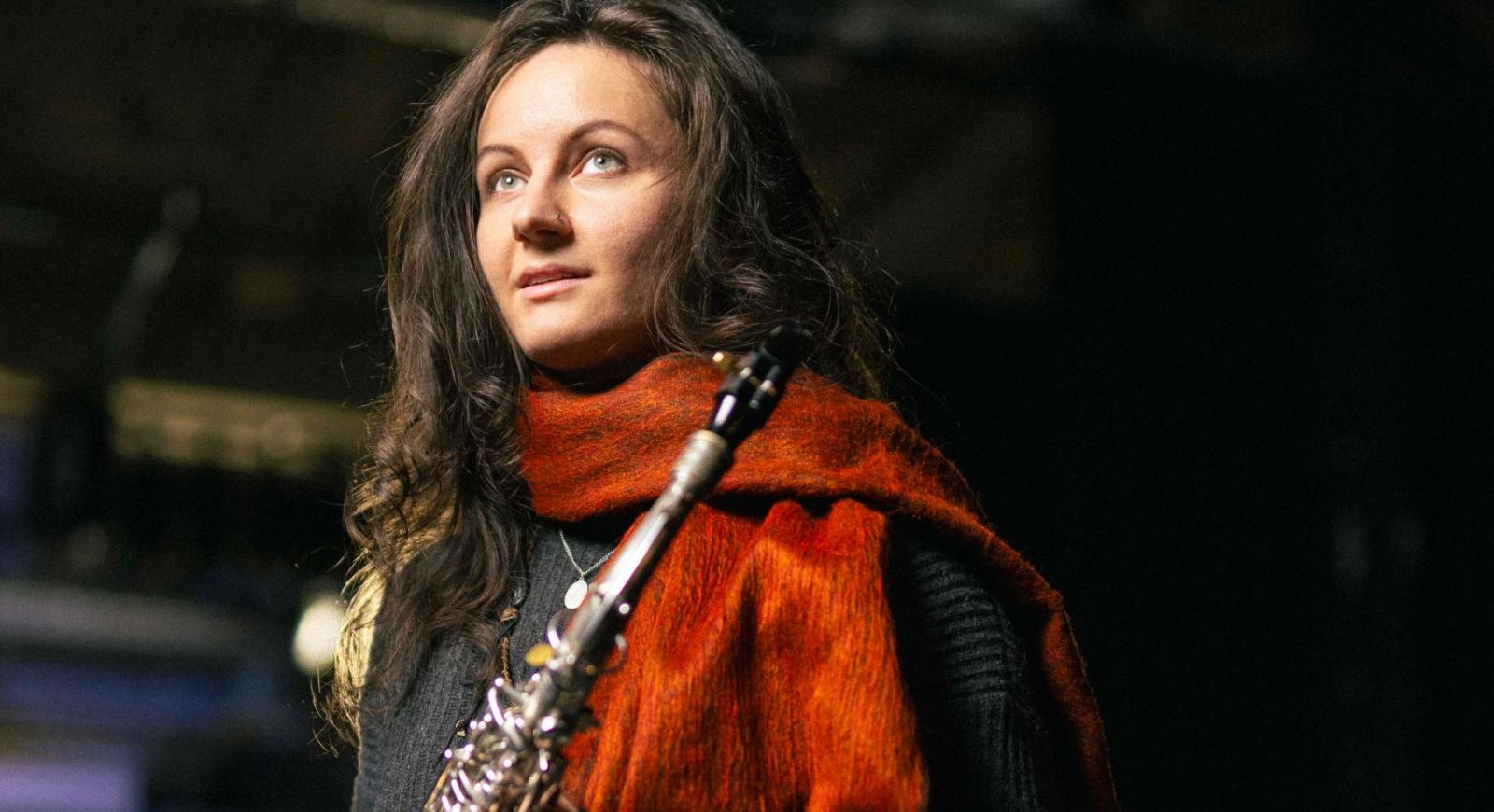
We caught up with Julia Warren, alumni of the Master's in Jazz Saxophone, who chose to stay in Maastricht after completing her 2-year studies. Originally from Montréal, Canada, Julia has called Maastricht home for nearly 4 years. She is a saxophonist, but also a proficient music producer and composer, crafting music inspired by her artistic research and explorations in sound and space. We dive deeper into Julia's journey and musical explorations below.
Why did you choose to study at Conservatorium Maastricht?
Classic question for any international student: How did you end up in Maastricht? I originally wanted to come to Western Europe after attending a Dick Oatts masterclass when I was 16 - he said this is the only part of the world where you can play saxophone and afford to raise a family. I chose to study at Conservatorium Maastricht, because somebody who studied here 10 years ago told me I would resonate with it. I kept this in my mind, and also met a peer from this school's Jazz Master's Degree while attending an improvisation workshop in Brooklyn, NYC. I always joke that all roads lead to Maastricht. During the pandemic, I lost all of my work as a full-time musician in Canada and took the risk to embrace the change and continue studying. This is ultimately what led me to take the plunge and come to Maastricht.
I studied in the Jazz Master's department. Enthused by the mix of performance and research the degree offered, I found that I resonated with a lot of the creative musicians on faculty. My two most "trusted advisors" were Reiner Witzel (lecturer saxophone), and Jesse Passenier as my research coach. Both in their own way, gave me a lot of respect and trust in my skill and work ethic, but also offered much support as I came to them with the more difficult questions.




